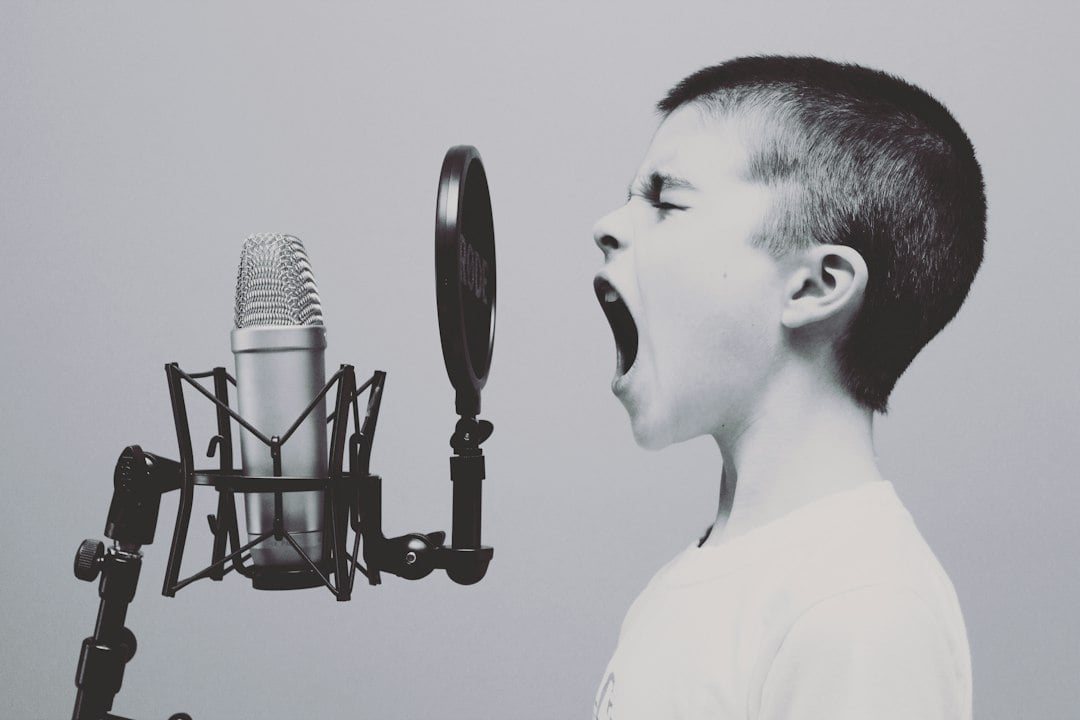
The Power of Reiki: Exploring the Healing Properties of Energy Therapy in Alternative Medicine
Reiki is a form of energy therapy that originated in Japan in the early 20th century. It is based on the belief that there is a universal life force energy that flows through all living things, and that this energy can be channeled to promote healing and well-being. The word “Reiki” is derived from two Japanese words: “rei,” which means universal, and “ki,” which means life force energy.
Reiki is a non-invasive and gentle therapy that involves the practitioner placing their hands on or near the recipient’s body to channel this healing energy. It is often used to promote relaxation, reduce stress, and alleviate physical and emotional pain. Reiki can be used on its own or in conjunction with other forms of medical or alternative therapies.
Key Takeaways
- Reiki is a form of energy therapy that aims to balance the body’s energy and promote healing.
- Reiki has a long history, originating from ancient traditions and evolving into modern practices.
- The science behind Reiki is still being studied, but it is believed to work by promoting relaxation and reducing stress.
- Reiki has many benefits, including physical, mental, and spiritual healing.
- Reiki can be used in conjunction with other alternative therapies to promote overall health and wellness.
The History of Reiki: From Ancient Traditions to Modern Practices
The origins of Reiki can be traced back to ancient Japanese healing practices. It is believed that Reiki was rediscovered by a Japanese Buddhist monk named Mikao Usui in the late 19th century. Usui developed a system of healing that involved the use of symbols and hand positions to channel energy and promote healing.
Reiki was brought to the West in the 1930s by Hawayo Takata, a Japanese-American woman who had been trained in Reiki by one of Usui’s students. Takata introduced Reiki to the United States and began teaching it to others. Since then, Reiki has continued to evolve and adapt to modern practices.
Today, Reiki is widely practiced around the world and has gained recognition as a complementary therapy in many healthcare settings. It is often used alongside conventional medical treatments to support healing and promote overall well-being.
How Reiki Works: The Science Behind Energy Healing
Reiki is based on the belief that there are subtle energy fields that surround and permeate the human body. These energy fields, often referred to as chakras, are believed to be responsible for maintaining physical, emotional, and spiritual health. When these energy fields become blocked or imbalanced, it can lead to physical or emotional symptoms.
During a Reiki session, the practitioner uses their hands to channel healing energy into the recipient’s body. The practitioner may place their hands directly on the body or hold them slightly above the body, depending on the recipient’s comfort level. The energy is believed to flow through the practitioner’s hands and into the recipient’s energy field, helping to restore balance and promote healing.
While the concept of energy healing may seem abstract or mystical, there is scientific evidence to support its effectiveness. Studies have shown that Reiki can reduce pain, improve mood, and promote relaxation. It is believed that Reiki works by activating the body’s natural healing mechanisms and promoting a state of deep relaxation, which allows the body to heal itself.
Benefits of Reiki: Healing the Mind, Body, and Spirit
| Benefits of Reiki | Description |
|---|---|
| Reduces stress and anxiety | Reiki promotes relaxation and helps to reduce stress and anxiety levels. |
| Improves sleep quality | Reiki can help to improve the quality of sleep by promoting relaxation and reducing stress levels. |
| Boosts the immune system | Reiki can help to boost the immune system by promoting relaxation and reducing stress levels, which can improve overall health. |
| Relieves pain and discomfort | Reiki can help to relieve pain and discomfort by promoting relaxation and reducing stress levels, which can help to reduce inflammation and improve circulation. |
| Enhances spiritual growth | Reiki can help to enhance spiritual growth by promoting a sense of inner peace and connection to a higher power. |
Reiki has a wide range of benefits for both physical and emotional well-being. On a physical level, Reiki has been shown to reduce pain and inflammation, improve immune function, and promote faster healing after surgery or injury. It can also help to alleviate symptoms of chronic conditions such as fibromyalgia or arthritis.
Emotionally, Reiki can help to reduce stress and anxiety, improve mood, and promote a sense of calm and well-being. It can also help to release emotional blockages and promote emotional healing. Many people find that Reiki helps them to feel more balanced and centered, and better able to cope with the challenges of daily life.
Spiritually, Reiki can help to enhance intuition and connection to higher consciousness. It can help individuals to tap into their own inner wisdom and guidance, and deepen their spiritual practice. Reiki is often used as a tool for personal growth and self-discovery, helping individuals to connect with their true selves and live more authentically.
Reiki and Alternative Therapies: Complementary Approaches to Health and Wellness
Reiki can be used in conjunction with other alternative therapies to enhance their effectiveness. For example, Reiki can be used alongside acupuncture or massage therapy to promote relaxation and enhance the benefits of these treatments. It can also be used alongside psychotherapy or counseling to support emotional healing and promote self-awareness.
Reiki can also be used as a self-care practice, allowing individuals to take an active role in their own healing and well-being. Many people learn Reiki for self-healing purposes, using it as a tool for stress reduction, relaxation, and personal growth. By incorporating Reiki into their daily routine, individuals can support their own health and well-being on a regular basis.
The Role of Reiki in Pain Management and Stress Reduction

One of the most common uses of Reiki is for pain management. Reiki has been shown to reduce pain levels in individuals with chronic pain conditions such as fibromyalgia or arthritis. It can also help to alleviate acute pain from injuries or surgeries.
Reiki works by promoting relaxation and reducing stress, which can help to alleviate pain. When the body is in a state of deep relaxation, it releases endorphins, which are natural painkillers. Reiki also helps to reduce inflammation in the body, which can contribute to pain.
In addition to pain management, Reiki is also highly effective for stress reduction. Many people find that a Reiki session helps them to feel more relaxed and centered, and better able to cope with the challenges of daily life. Regular Reiki sessions can help to reduce stress levels over time, promoting overall well-being.
Reiki for Emotional Healing: Addressing Trauma, Anxiety, and Depression
Reiki can be a powerful tool for emotional healing. It can help individuals to release emotional blockages and promote healing from past traumas or difficult experiences. Reiki can also help to reduce symptoms of anxiety and depression, promoting a sense of calm and well-being.
During a Reiki session, the practitioner works with the recipient’s energy field to help release any emotional blockages or imbalances. This can help individuals to process and release emotions that may be causing them distress. Many people find that Reiki helps them to feel lighter and more at peace after a session.
Reiki can also be used as a self-care practice for emotional healing. By practicing Reiki on themselves regularly, individuals can support their own emotional well-being and promote healing from within.
Reiki for Spiritual Growth: Enhancing Intuition and Connection to Higher Consciousness
In addition to its physical and emotional benefits, Reiki can also be a powerful tool for spiritual growth. Reiki helps individuals to connect with their own inner wisdom and guidance, enhancing intuition and promoting a deeper connection to higher consciousness.
During a Reiki session, individuals often experience a sense of deep relaxation and inner peace. This state of relaxation allows them to access their own inner wisdom and guidance, helping them to make decisions that are in alignment with their highest good.
Reiki can also help individuals to connect with their spiritual selves and deepen their spiritual practice. Many people find that regular Reiki sessions help them to feel more connected to something greater than themselves, whether that be a higher power, the universe, or their own inner divinity.
Reiki Training and Certification: Becoming a Practitioner of Energy Healing
If you are interested in becoming a practitioner of energy healing, there are many training programs available that can teach you the principles and techniques of Reiki. These programs typically involve a combination of classroom instruction, hands-on practice, and supervised clinical experience.
The training and certification process for Reiki practitioners can vary depending on the program and the level of certification you are seeking. There are typically three levels of Reiki certification: Level 1, Level 2, and Master/Teacher Level. Each level builds upon the previous one, allowing you to deepen your understanding and practice of Reiki.
Becoming a certified Reiki practitioner can have many benefits. It allows you to offer Reiki sessions to others, either as a standalone practice or in conjunction with other therapies. It also gives you the opportunity to deepen your own personal practice and continue your own healing and growth journey.
The Future of Reiki: Advancements and Innovations in Energy Therapy
As energy therapy continues to gain recognition and acceptance in mainstream healthcare settings, the future of Reiki looks promising. There is a growing body of scientific research supporting the effectiveness of Reiki, and more healthcare providers are incorporating it into their practices.
In addition to its use in healthcare settings, Reiki is also being used in other innovative ways. For example, some hospitals are offering Reiki to patients undergoing surgery or other medical procedures to help reduce anxiety and promote healing. Some schools are also incorporating Reiki into their curriculum to help students manage stress and improve focus.
As our understanding of energy healing continues to evolve, it is likely that new advancements and innovations will emerge. This could include new techniques or approaches to energy healing, as well as new applications for Reiki in specific populations or conditions.
Reiki is a powerful form of energy therapy that has been used for centuries to promote healing and well-being. It has a wide range of benefits for both physical and emotional health, and can be used alongside other therapies to enhance their effectiveness. Whether you are seeking pain relief, stress reduction, emotional healing, or spiritual growth, Reiki can be a valuable tool on your journey to wellness. By becoming a certified Reiki practitioner, you can not only support your own healing and growth, but also help others on their own healing journeys. The future of Reiki and energy therapy looks promising, with new advancements and innovations on the horizon. As our understanding of energy healing continues to evolve, Reiki will likely continue to play a significant role in promoting health and well-being for years to come.
If you’re interested in exploring the healing properties of Reiki energy therapy, you may also find the article “The Power of Magnetic Therapy in Alternative Healing Practices” on Wave Magnets website intriguing. This informative piece delves into the benefits of using magnetic therapy as a complementary approach to healing and wellness. Discover how magnetic fields can influence the body’s energy flow and promote overall well-being. To learn more, visit https://wavemagnets.com/ and explore their insightful content, including their sample page at https://wavemagnets.com/sample-page/.
FAQs
What is Reiki energy therapy?
Reiki energy therapy is a form of alternative healing practice that involves the transfer of energy from the practitioner to the patient to promote physical, emotional, and spiritual healing.
How does Reiki energy therapy work?
Reiki energy therapy works by channeling energy from the practitioner to the patient through the hands. The energy is believed to promote healing by balancing the patient’s energy centers and removing blockages.
What are the benefits of Reiki energy therapy?
The benefits of Reiki energy therapy include reduced stress and anxiety, improved sleep, pain relief, and enhanced overall well-being.
Is Reiki energy therapy safe?
Reiki energy therapy is generally considered safe and non-invasive. However, it is important to consult with a qualified practitioner and inform them of any medical conditions or medications before undergoing treatment.
How long does a Reiki energy therapy session last?
A typical Reiki energy therapy session lasts between 60 and 90 minutes, although the length may vary depending on the practitioner and the patient’s needs.
Is Reiki energy therapy recognized by mainstream medicine?
Reiki energy therapy is not currently recognized by mainstream medicine as a valid form of treatment. However, it is widely used as a complementary therapy in conjunction with traditional medical treatments.















